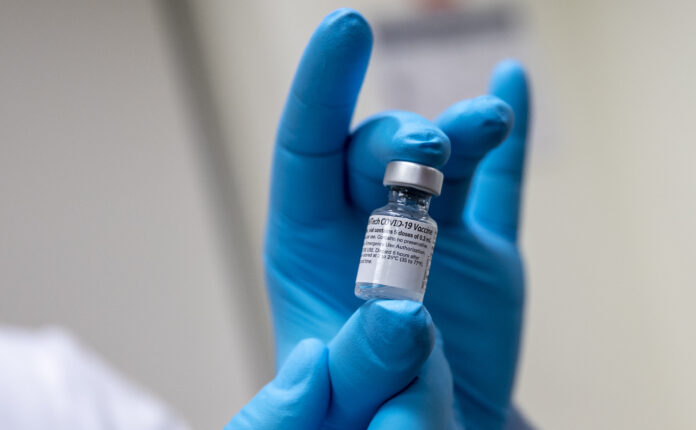Although the number of fully-vaccinated individuals increases daily, there are still safety precautions that everyone must follow, according to the CDC and UC Davis employees
With the COVID-19 vaccine rollout well underway, the Centers for Disease Control and Prevention (CDC) has released new guidelines for fully vaccinated individuals. Changes for fully vaccinated individuals include being able to gather indoors with other fully vaccinated people without masks, gathering indoors with unvaccinated people from one household without masks and not being required to get tested after coming into contact with someone who has COVID-19 if they do not exhibit symptoms. While a sense of normalcy is slowly starting to return for those who have received the vaccine, there are still safety precautions everyone must take.
According to Dr. Brad Pollock, the associate dean of public health sciences at the UC Davis School of Medicine, the CDC always tries to use the best available scientific evidence to make their recommendations. The CDC recognized that individuals who are fully vaccinated are at a much lower risk of being infected and are at almost no risk of experiencing symptoms that are severe enough to require hospitalization or cause death.
Despite this, Pollock stated that sometimes the available evidence is lacking. Where prior scientific studies are not available, the CDC will rely on expert opinion to help establish guidelines. While much of the guidance for fully vaccinated individuals is based on evidence, other recommendations were expert opinion.
“They got most of it right,” Pollock said. “However, they suggested that fully vaccinated individuals do not need to be tested if they are asymptomatic. In my opinion, waiting until a vaccinated individual develops symptoms before testing is not prudent, especially where widespread, free testing is available, like in Davis.”
There is no scientific evidence yet that vaccinated individuals who become infected, despite being fully vaccinated, cannot be carriers of the virus and possibly infect others, according to Pollock. Those assessments are still being carried out, so it may be premature to recommend testing only for individuals with symptoms of COVID-19.
According to Pollock, while restrictions can be relaxed to reflect decreases in risk, it is important not to abandon preventative recommendations. Pollock also emphasized that if there are unvaccinated individuals present, fully vaccinated individuals should still wear masks in order to ensure the safety of all.
In addition to remaining vigilant to protect unvaccinated individuals, there has been a sense of urgency regarding new variants of COVID-19.
“So far, the vaccines we are using are effective against the common variants we are seeing in our area,” Pollock said. “The faster we roll out vaccination, the less opportunity there is for new variants to take hold. So we are really racing against time to get as many people vaccinated as possible now.”
Still, there is hope that the end of the pandemic is in sight. Precautions will slowly continue to ease as more individuals receive the vaccine. To achieve herd immunity, the proportion of susceptible individuals in the population must be decreased to 10-20%, according to Pollock.
“At that point, the pandemic will begin to snuff itself out,” Pollock said. “But that is not expected until late this year or early next year.”
The rising number of vaccinated individuals has been reflected in the healthcare setting. Eva Teniola, a clinical nurse in the emergency department at the UC Davis Medical Center, stated that the number of COVID-19 cases in her workplace has been decreasing and the ratio of COVID-19 patients to healthcare workers is very low. There have been no new cases of COVID-19 within the emergency department staff since the medical center reached herd immunity, with 95% of the staff being vaccinated.
“I am confident with the effectiveness of the vaccine from the evidence based in my hospital,” Teniola said. “I believe we still have to be responsible and follow the guidelines. We cannot afford to be complacent as everything is still new and the study of these vaccines is still ongoing.”
Furthermore, Teniola said that while hope for the end of the pandemic is real, it is crucial for community members to look out for one another in reaching this goal.
“I am thankful that we have the vaccine, but at the same time, I plead that we remain vigilant with what we do to protect each other,” Teniola said. “The incoming months look much brighter, and I hope the government will continue to support science in pursuing the vaccine study. Soon, a time will come when [COVID-19] will be like any other seasonal virus.”
As of April 1, California residents at or over the age of 50 can receive the vaccine. Those 16 or older will be eligible on April 15. UC Davis students, staff and faculty can visit MyUCDavisHealth or Health E-Messaging to make a vaccination appointment when eligible.
Written by: Liana Mae Atizado — features@theaggie.org





